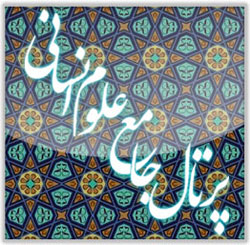Aesthetic Choices in Everyday Life (A Sociological Study of Artworks Displayed on Walls in Tehran Homes)
Keywords:
Cultural capital, sociology of art, everyday life, artistic taste, TehranAbstract
In modern societies, everyday life has become a space for symbolic representation and social identity formation. One manifestation of this representation is the selection of artworks for decorating interior home spaces. This study, grounded in the sociology of art—particularly Pierre Bourdieu’s theory of cultural capital—examines how social and cultural factors influence the selection of artworks in homes across Tehran. The research aims to analyze the social dimensions of artistic taste in private spaces and to understand the class-based, aesthetic, and cultural dynamics reflected in these choices. This qualitative study employs thematic analysis and participant observation across several socioeconomically diverse neighborhoods in Tehran. Data were collected through semi-structured interviews with 20 households and photographic documentation of artworks displayed in living and reception areas. Findings indicate that individuals’ artistic choices are significantly associated with their level of cultural capital, educational attainment, social class, and cultural disposition. Upper-class households tend to prefer conceptual, modern, and abstract styles, while lower-class households exhibit a stronger preference for simple, accessible, and realistic artworks. However, in some cases, aesthetic boundaries appear fluid and intertwined, revealing what might be termed a form of "aesthetic diaspora. Artworks in homes serve as markers of cultural capital and acts of social representation. To democratize artistic taste and enhance public cultural capital, educational interventions and equitable cultural access are essential.
Downloads
References
1. Heinich N. Sociology of Art. Tehran: Agah Publishing; 2005. 23-9 p.
2. Kumar K. Durkheim and Weber: On the methodology of the social sciences: Chicago, IL: University of Chicago Press; 1991.
3. Mohammadi Asl A. Sociological Theory. Tehran: Sociologists Publishing; 2009. 250-2 p.
4. Bourdieu P. Theory of Action: Practical Reasons and Rational Choice. Naghshe-o-Negar Publishing2003.
5. Jalaeipour H, Mohammadi J. Late Sociological Theories. Tehran: Ney Publishing; 2009. 319 p.
6. Tavassoli GA. An Analysis of Bourdieu's Thought. Social Sciences Letter. 2004(23):22.
7. Raoudrad A. Sociological Theories of Art and Literature. Tehran: University of Tehran Publishing; 2004.
8. Raoudrad A, editor A Sociological Definition of Art. Sociology of Art Symposium; 2005 December 2004; Academy of Art.
9. Bourdieu P. Distinction2010.
Downloads
Published
Submitted
Revised
Accepted
Issue
Section
License
Copyright (c) 2025 Maliheh Sadat Hosseini; Naser Arasteh, Mohammad Reza Moridi (Author)

This work is licensed under a Creative Commons Attribution-NonCommercial 4.0 International License.










